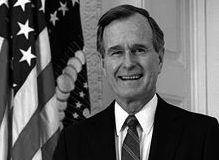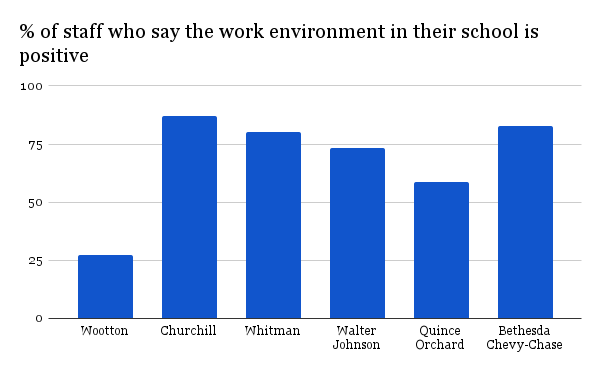Why should the American people care about the lifespan of former presidents? What could they possibly tell us about the present world in which we live? Who cares which presidents are still around?
All are valid questions that came arose on Nov. 25, when former President George H. W. Bush became the longest-lived president in the history of the United States. He surpassed the previous record held by Gerald Ford, who, upon his death in 2006, had lived a life of 34,133 days (or 93 years and 165 days).
Examining our former living presidents forces us to look backward to different times – times when the world’s greatest threat was a country no longer in existence, when partisan differences could be solved by literally sitting down at a table and talking them over, when Democrats won elections in the South and Republicans in the Northeast. By looking backward, we learn more about the modern political world and what can be done to ameliorate its many difficulties.
Exploring the administration of George H. W. Bush raises questions about his presidency and the current controversies surrounding sexual assault allegations that have hampered celebrations over his historic milestone. Nearly 30 years after his election to the presidency, it is time to examine what is missing from today’s society that allowed a president to garner an 89 percent approval rating in 1991, something almost unthinkable 36 years later under a highly polarizing president.
Bush’s Background
Few people know the life story of President Bush. He was born in 1924 in Massachusetts and was the son of Prescott Bush, who had been a U.S. senator from Connecticut from 1952 until 1963. He enlisted in the military in 1942 and became the youngest aviator in the U.S. Navy during World War II. After being shot down by the Japanese in 1944, Bush returned home and moved to Texas, where he entered the oil industry and became a millionaire by the age of 40.
In 1964 he made his entrance into politics by challenging incumbent Senator Ralph Yarborough of Texas in that year’s election, running as a Republican. He lost, but was elected to the House in 1966 and again in 1968. In 1971, President Richard Nixon nominated him to be ambassador to the United Nations (a post he held from 1971 to 1973). He became chairman of the Republican National Committee in 1973, the ambassador to China in 1974 and the director of the Central Intelligence Agency in 1976.
After waging an unsuccessful campaign for the Republican nomination for president in 1980, Ronald Reagan selected Bush to be his running mate in an effort to defeat Jimmy Carter that ultimately proved successful. Eight years later, he was elected president.
His four year presidency from 1989 to 1993 was marked by considerable foreign policy challenges, ranging from the fall of the Berlin Wall and the dissolution of the Soviet Union to the Iraqi invasion of Kuwait in 1990. Domestically, he struggled with an economy that entered a recession in the early 1990s and faced considerable backlash among his fellow Republicans for raising taxes after he promised during the 1988 campaign that he would not. He lost reelection in 1992 to Democratic Governor Bill Clinton of Arkansas.
A Disappointing Celebration
Celebrations over him becoming the nation’s longest-lived president have been largely overshadowed by a slew of recent sexual misconduct allegations against the 93-year-old. To date, 10 women have come forward with various claims of assault, including one woman who says that Bush grabbed her inappropriately while he was president in 1992. Another woman alleged that Bush groped her while posing for a photo in 2003, when she was just 16.
Many of the allegations have been more recent, however, and all women share a similar story. Bush, who has been confined to a wheelchair since at least 2013, grabbed their buttocks while posing for pictures and made an inappropriate joke.
He would ask the women, “Do you know who my favorite magician is?” before grabbing their buttocks and answering “David Cop-a-feel.”
Bush’s staff apologized for anything that may have made anyone uncomfortable but claims that because his wheelchair leaves him at buttocks-level, he tried to ease the situation with a joke.
The community’s perspectives on the controversy vary, with a large percentage of people finding these allegations unacceptable. “I recognize that he is old, but that doesn’t excuse him,” junior Timothy Jiang said. “Justice in this country is blind to age.”
Amidst the broader backdrop of sexual assault allegations that have implicated Harvey Weinstein, Roy Moore and, most recently, Matt Lauer, Bush has received some criticism. But is it enough to force a reevaluation of his legacy?
The Legacy of 41
Every now and then, a group of historians get together and rank the presidents according to a number of criteria. The first ranking to include Bush was conducted in 1990, midway through his presidency; he was ranked 18th of 40 presidents. Yet by 1994, when he was out of office, his ranking had fallen to 31st of 41 presidents.
The most recent survey was done by C-SPAN in 2017. Broken up into 10 categories to calculate one large overall score, Bush finished the survey in 20th place overall, just behind John Adams and ahead of John Quincy Adams. His best ranked category was “International Relations,” in which he placed eighth out of the 43 presidents in the study and ahead of his predecessor Ronald Reagan. His worst category was “Vision / Setting an Agenda,” in which he finished 27th.
For reference, Barack Obama finished 12th overall, 24th in “International Relations” and 12th in “Vision / Setting an Agenda.” Obama’s best category was “Pursued Equal Justice for All,” in which he placed 3rd (behind only Abraham Lincoln and Lyndon B. Johnson). His worst was “Relations with Congress,” in which he finished in an embarrassing 39th, ahead of only Franklin Pierce, John Tyler, James Buchanan and Andrew Johnson, who was impeached in 1868.
One important category to examine is “Relations with Congress” in which two recent presidents (Barack Obama and George W. Bush) both fared below average. In this category, Bush placed 15th, higher than any president since Reagan. As we reflect on the successes of the Bush administration, it is important that politicians of today look back on a time when working across the political lines was revered and when the Democrats and Republicans weren’t so ideologically polarized.
Conclusion
As George H. W. Bush celebrates a remarkable milestone, the American people can use this as a learning opportunity. It is through such reflection that we can look forward. There is much to learn both from Bush’s presidency and post-presidency. We can learn what it means to handle crises diplomatically and compromise for the benefit of all. But we can also see how far a man who was once so popular can fall as such women come forward and challenge his legacy.
Nonetheless, Bush should be celebrated for reaching such an old age, both as a World War II president and a man who served his country diplomatically around the world for decades.
Matthew Klein
Managing Editor




![Editors-in-Chief Ahmed Ibrahim, Helen Manolis, Cameron Cowen, Alex Grainger, Emory Scofield, Hayley Gottesman, Rebekah Buchman and Marley Hoffman create the first print magazine of the year during the October press days. “Only a quarter of the schools in MCPS have programs that are like ours, a thriving, robust program. That makes me really sad. This is not just good for [the student journalists] to be doing this, it’s good for the entire community. What [student journalists] provide to the community is a faith in journalism and that continues for their lifetimes," Starr said.](https://woottoncommonsense.com/wp-content/uploads/2025/10/wmpoFTZkCPiVA3YXA4tnGoSsZ4KmnKYBIfr18p3l-900x1200.jpg)



